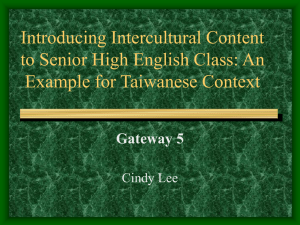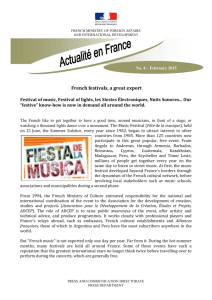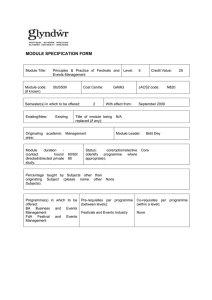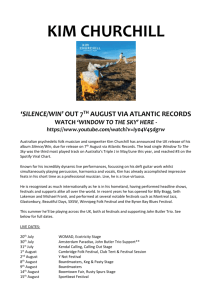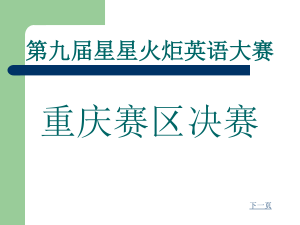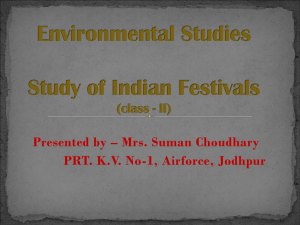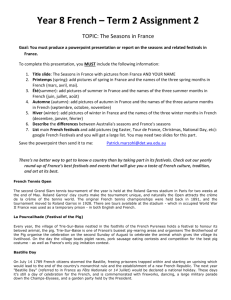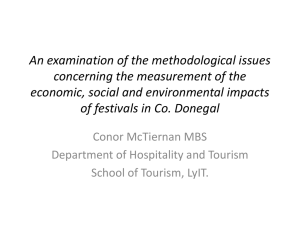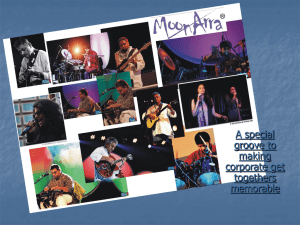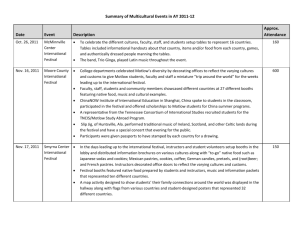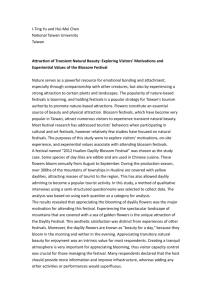Can Artistic Festivals be an intellectual proposition?
advertisement
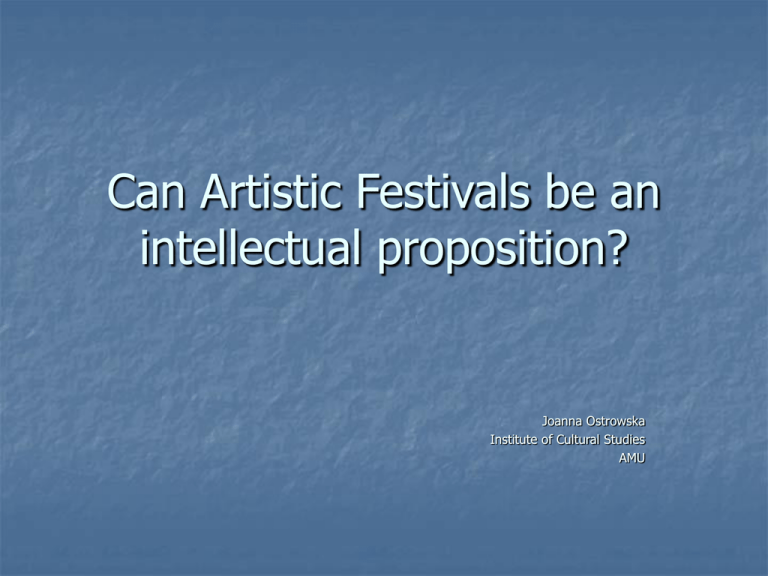
Can Artistic Festivals be an intellectual proposition? Joanna Ostrowska Institute of Cultural Studies AMU Problem of festivals wit social and intellectual agenda is connected with audience development leadership issues also urban development The two examples of such festivals in Poland: Brave – Against Cultural Exile Festival in Wrocław Festival of Dialogue of Four Cultures in Łódź None of them is devoted to one art discipline Their main focus is to present certain idea through different performative practices The main theme of both of them is culture understood as a way of “being in the world” Both recall forgotten or/and excluded cultures Both festivals deal with the cultural diversity in contemporary globalized world and at the same time can be an inspiration for the future in our rather mono-cultural country Brave Festival in Wrocław (the name is from “brave people who devoted themselves to save cultures in danger”) “After years of visiting festivals in Poland and abroad I was tired of the identical format dominating everywhere: let’s show a product and let’s see a product. Festivals reduce artists’ work to the dimension of a product only, a commodity for consumption. They are not interested in the work process, its context, or what the work means to people. I didn’t want to repeat a similar format” Grzegorz Bral – festival creator, leader and director each year devoted to different subject: „Voices of Asia”, „Drowned Songs”, „Ritual starts in Africa”, „Prayers of the World” permanent collaboration with ROKPA – international organizations that works with orphans in Tibet (certain percentage from tickets is put on organization account) and e.g. this year fundraising for Uganda children volunteers – pedagogical aspect of showing to the youngsters different cultures Brave Kids – workshops for children By presenting distant cultures organizers want to bring the issues of tolerance in Polish society that has to learn how to incorporate newcomers of different cultures and origins. Festival of Dialogue of Four Cultures through its artistic programme, conferences and publications tries to bring the questions about Łódź cultural background and how it can serve contemporary city Festival tries to create city identity Cultural and social „akupresure” catalogues of the festivals are the unique “textbook” covering the subject of the festival. The catalogue thus becomes a valuable testimony to the festival, a textbook which offers the participants a certain intellectual proposal, and presents him/her with material for further reflection One of the main issues of the festival is to enlive intercultural dialogue that will bring the issues of muliticulturalism, tollerance and tradition this dialogue can to help build “European identity” rooted in cultural diversity that was for many years forgotten in Poland. Questions: Can we „learn” anything from/through art? Can festival with „intellectual agenda” be more instructive than „normal” festival of art? Are we trying to make art more „useful”? Can we mesure „social impact” of such events? Conclusions Artistic festival can be treated as an intellectual proposition if “art” is not their main interest they most likely can be “intelectual proposition” if they are the reflection of a view on the world, not art. I find most valuable the practices whose object is intellectual stimulation of the participants, as well as concern for their progress both in social and individual terms. The mission of art is supposed to lead to extending freedom by preventing the rules governing reality to become fossilized in the form of dead and blind certainties. This emancipating force can be maintained by art, if it forces both artists and the audience to get involved in the process of understanding and interpreting the meanings, which will bring questions about the objective truth, as well as the subjective sphere of reality. In this way, art will liberate the opportunities of life […] from the tyranny of consensus, which is – has to be (shouldn’t, but it is) – excluding and disqualifying.” Zygmunt Bauman

